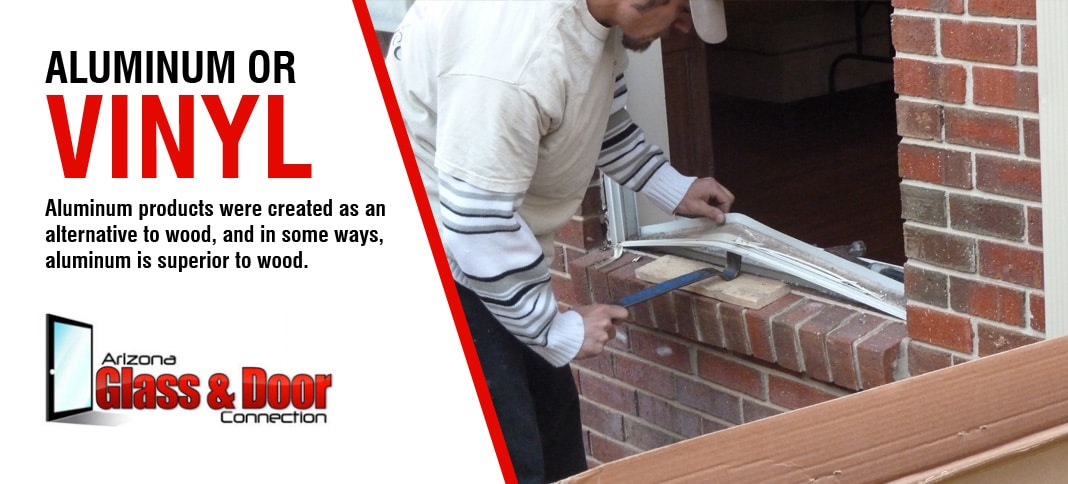Aluminum products were created as an alternative to wood, and in some ways, aluminum is superior to wood.
It’s stronger, more durable, and requires less reoccurring maintenance like painting and staining. Over the years, aluminum has made many advances but there are some inherent problems when using aluminum products.
In today’s building industry, environmental and health concerns are key issues that the performance of aluminum products simply fails to address primarily because of
- Heat transfers
- Aluminum is prone to corrosion
For example, if you want the best cookware for your kitchen you buy aluminum. Why? It’s because aluminum transfers heat across its surfaces very well. In the home, however, this translates into poor energy efficiency because aluminum windows are like little radiators transferring the temperature–hot or cold– from outside to inside the house.
This heat transfer, especially in colder regions, causes condensation (sweating). The water in the air will naturally be drawn to, and collect on the aluminum windows, which are always the coldest objects in the home. The sweating can create problems when water gets trapped between the window and the Sheetrock and wood inside the walls. The result is often a build-up of mold, mildew, and rot, which are major health issues in today’s homes.
Contrary to popular belief, and especially in coastal areas, aluminum is also prone to corrosion. The fasteners, which are made of either zinc or steel, react with the aluminum and over time corrode to the point where the windows become brittle and can even break apart.
To combat the temperature transfer, manufacturers of aluminum windows attempt to thermally improve their products by incorporating a thermal break within the product. These thermal breaks are usually made from vinyl, which is clad into the aluminum.
And the discussion above begs the question…
Why not just buy vinyl windows in the first place?
Although aluminum windows don’t need the constant repainting and maintenance like wood, (aluminum is a painted metal) if the product is scratched or damaged in any way you can easily see right through the paint to the metal beneath.
This can be unsightly and very difficult to repair. Vinyl, on the other hand, is the same color throughout. If it’s scratched or damaged the only thing that shows through is more color.
Also, because the window’s moving parts are metal brushing against metal, aluminum products need to be lubricated on a regular basis. Aluminum, like wood, has its advantages. It’s stronger than wood and requires less maintenance. But, also like wood, aluminum has many natural attributes that make it a product whose disadvantages outweigh its benefits, especially in coastal climates.
Vinyl offers all the benefits of aluminum products without any of the drawbacks.
Unlike aluminum, vinyl will not
- corrode,
- pit,
- fade
- create water damage to the home over time.
Vinyl is a good thermal break: it will minimize the temperature transfer from outside to inside the home, thus saving energy. There is never a need to repaint vinyl products.
It is long lasting and can easily withstand the effects of the environment, no matter how warm, cold, or harsh the climate.
Arizona Glass & Door Connection offers unmatched pricing on Vinyl windows and Aluminum windows installations and servicing in Phoenix, Arizona.
We deal in broken windows, installation of new windows, as well as yearly servicing of Aluminum as well as Vinyl windows.
Call us today for a no-obligation quote at 602-375-2000. You’ll be glad you did.



